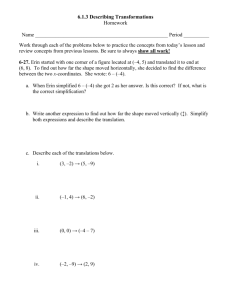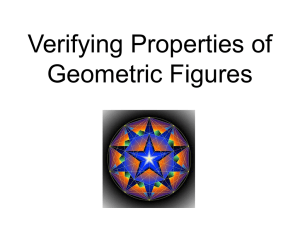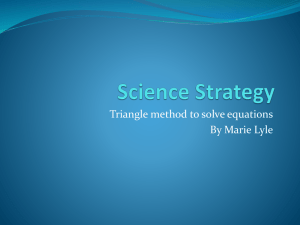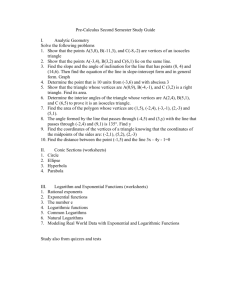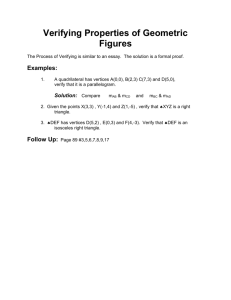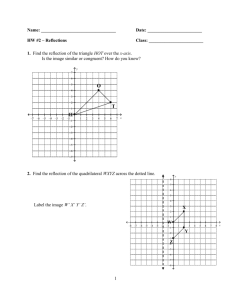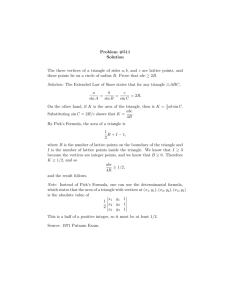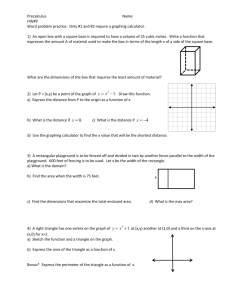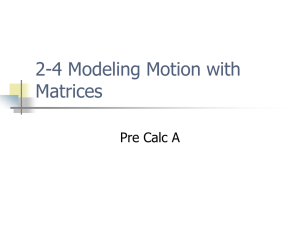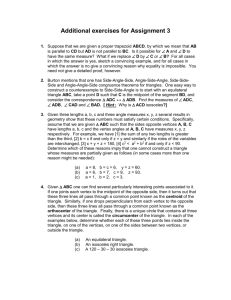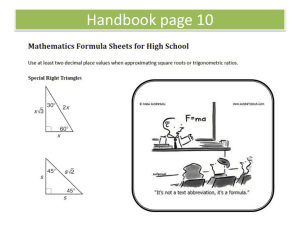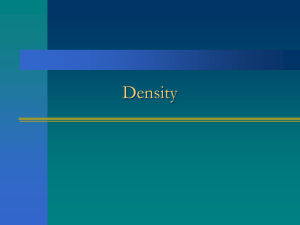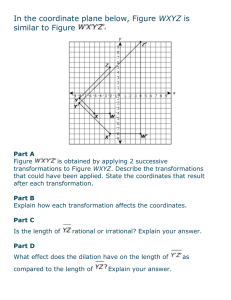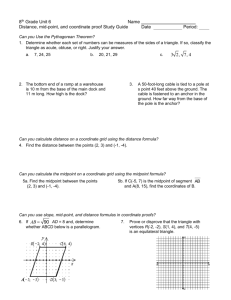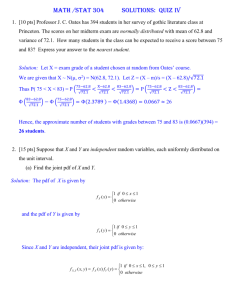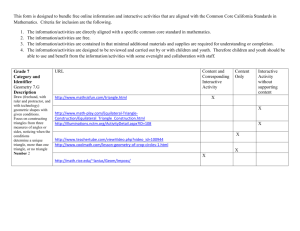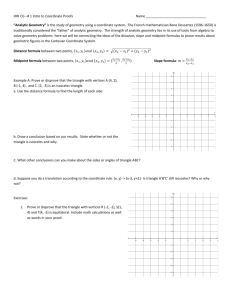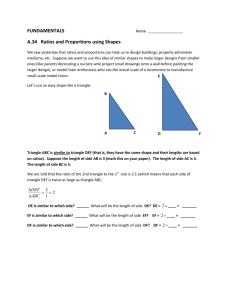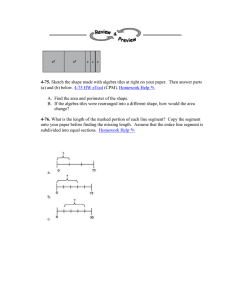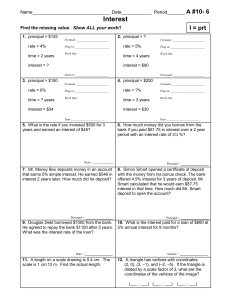6.1.3 Describing Transformations Homework Name Period ______
advertisement
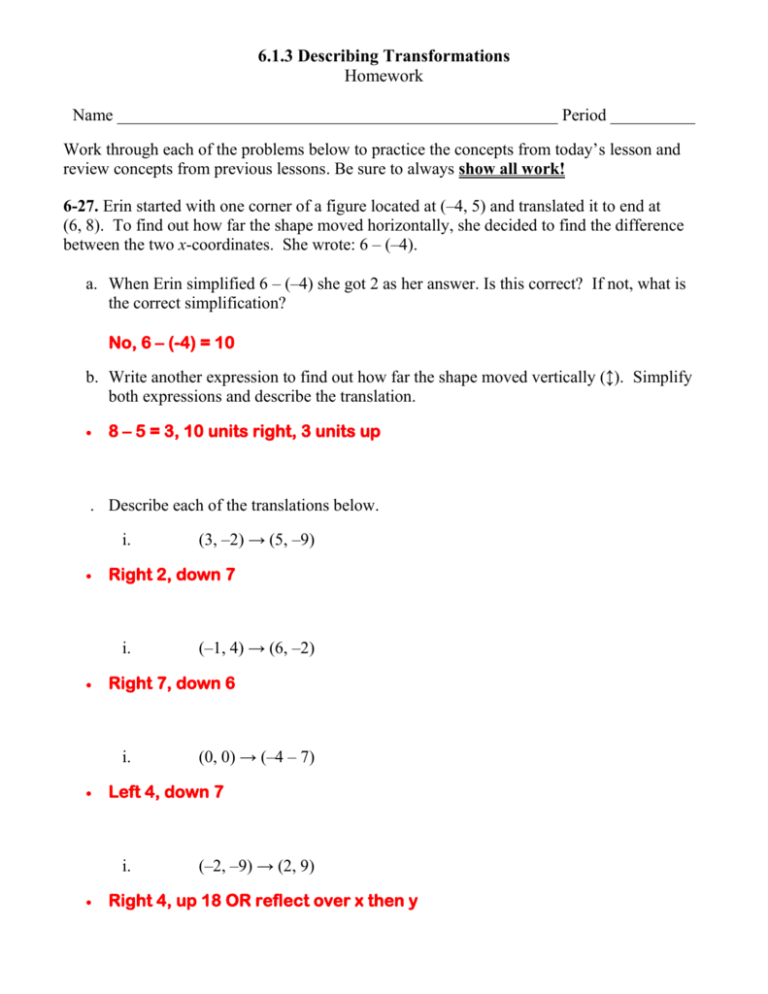
6.1.3 Describing Transformations Homework Name ____________________________________________________ Period __________ Work through each of the problems below to practice the concepts from today’s lesson and review concepts from previous lessons. Be sure to always show all work! 6-27. Erin started with one corner of a figure located at (–4, 5) and translated it to end at (6, 8). To find out how far the shape moved horizontally, she decided to find the difference between the two x-coordinates. She wrote: 6 – (–4). a. When Erin simplified 6 – (–4) she got 2 as her answer. Is this correct? If not, what is the correct simplification? No, 6 – (-4) = 10 b. Write another expression to find out how far the shape moved vertically (↕). Simplify both expressions and describe the translation. 8 – 5 = 3, 10 units right, 3 units up . Describe each of the translations below. i. Right 2, down 7 i. (0, 0) → (–4 – 7) Left 4, down 7 i. (–1, 4) → (6, –2) Right 7, down 6 i. (3, –2) → (5, –9) (–2, –9) → (2, 9) Right 4, up 18 OR reflect over x then y 6-28. On the graph paper below, set up x- and y-axes for a four quadrant graph. Then draw a triangle with vertices at (1, 1), (5, 1), and (6, 3). Label this triangle T. a. Translate (slide) the triangle left 3 units and down 4 units. Label this triangle A and list the vertices. (-2,-3) (2,-3) (3,-1) b. Reflect triangle T across the y-axis. Label this triangle B and list the vertices. (-1,1) (-5,1) (-6,3) Are triangles T, A, and B congruent (that is, do they have the same shape and size)? Explain. Yes 6-29. Change each equation below into y = mx + b form. a. y − 4x = − 3 b. y = 4x – 3 c. 3x + 2y = 12 y = -3/2x + 6 b. 3y − 3x = 9 y = x +3 d. 2(x − 3) + 3y = 0 y = -2/3x + 2 6-30. Solve the problem below by defining a variable and then writing and solving an equation. The perimeter of a triangle is 31 cm. Sides #1 and #2 have equal length, while Side #3 is one centimeter shorter than twice the length of Side #1. How long is each side? Let s represent the length of Side #1, s + s + 2s –1 = 31, Side #1 = Side #2 = 8 cm, Side #3 = 2 · 8 – 1 = 15 cm 6-31. Simplify each expression. a. · (− ) -73/350 b. 0.4 · 0.3 .012 c. 5 + 8 d. −1.2 + (− ) 13_23/45 -1.8 or -1_ 4/5 6-32. Each part (a) through (d) below represents a different tile pattern. For each, find the growth factor and the number of tiles in Figure 0. Representation Growth Factor Tiles in Fig 0 5 3 -2 3 3 -14 -5 3 a. b. c. y = 3x − 14 d.
